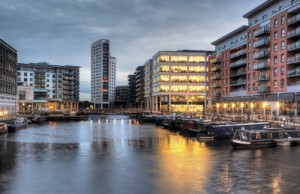Leeds has a population of nearly 800,000 and is among the largest cities in the UK. It is considered to be at the heart of the West Yorkshire Urban Area, a region with a population of around 2.3 million, making it the fourth largest metropolitan area in the country. Given its size, Leeds was an unsurprising choice to be allocated one of the next generation large casino licences created under the 2005 Gambling Act.


Like elsewhere, the process of determining how the licence will be awarded is only now coming to a head, with five applicants putting forward proposals for developing such a property.
Leeds itself already boasts four casinos – Grosvenor, Gala, which following Rank’s acquisition is soon to become a Grosvenor property, Napoleons and Alea – all within the city centre. In the case of Gala and Napoleons, they are practically across the street from each other. There are also various bingo halls, arcades and additional casinos in the neighbouring towns of Bradford and Huddersfield. All are of a modest size and are competing with other entertainment options in the city. The decision to go ahead with the large casino, which will have a gaming floor of at least 1,000sq.m and up to 150 slot machines, therefore poses some interesting questions for the local marketplace.
Four of the bids propose building substantial new complexes, which, with the exception of Leeds United, are all located within the city centre. The fifth, Alea, proposes adding to its existing offering. Leeds United’s Elland Road Stadium is a few miles from the city centre and would presumably aim to draw from its existing customer and commercial base, as well as others travelling from the city and its surrounding areas. The club itself would not be operating the casino but is seeking possible partners.
The key question is, will a new, larger casino complex add to competition in the city or cannibalise the other businesses? It will certainly be interesting to watch the changing dynamics of the market if, for example, the new complex is located in the city centre itself and adds a fifth casino to what is already a city served well by its existing gaming facilities.
It is easy to imagine that a casino that has the advantage of being larger and able to offer a greater number and variety of slots and gaming tables will immediately win the largest market share at the expense of the existing casinos. But will the older properties retain their own distinctive customer bases irrespective of any new competition? Will Grosvenor, if successful, seek to maintain three casino properties within only a few miles of each other?
Competition is clearly nothing new and here it may come down to who best understands both local players and the concept of gaming within the umbrella term of leisure entertainment. Any new development will, after all, also be competing against local cinemas, restaurants and the new arena that will open shortly for leisure spend.
All five applications will be considered at a council hearing in July, with successful stage one applicants invited to participate in stage two of the process. A final decision is expected by spring next year. The council has already stated that it has no preferred location for the large casino and that each application will be judged on the benefits they will bring to the city.
The five bids are:
Global Gaming Ventures Eastgate Quarters, a £600m retail development in the heart of the city centre
Grosvenor Casinos G Casino at Quarry Hill, an area becoming known as the cultural quarter of the city, boasting the West Yorkshire Playhouse and the Northern Ballet
Leeds United Football Club The West Stand, one of Elland Road Stadium’s concourses in need of much development
London Clubs International Alea Casino, the city’s newest casino is looking to expand its existing offering
Rushbond Majestic, a former nightclub building close to the train station, the Queens Hotel and Leeds’ financial district

